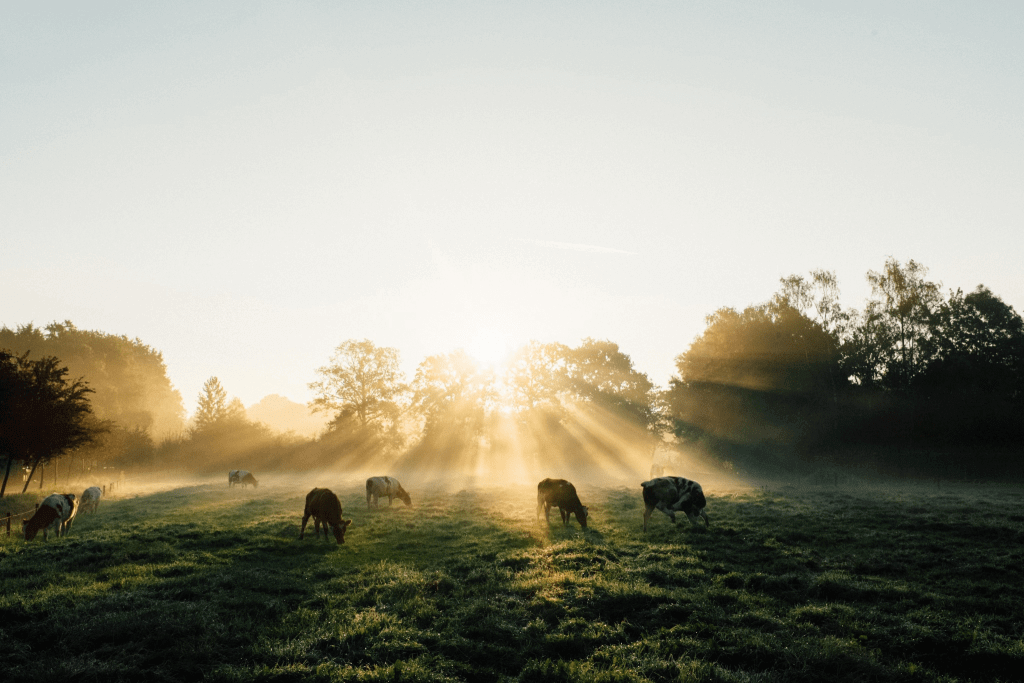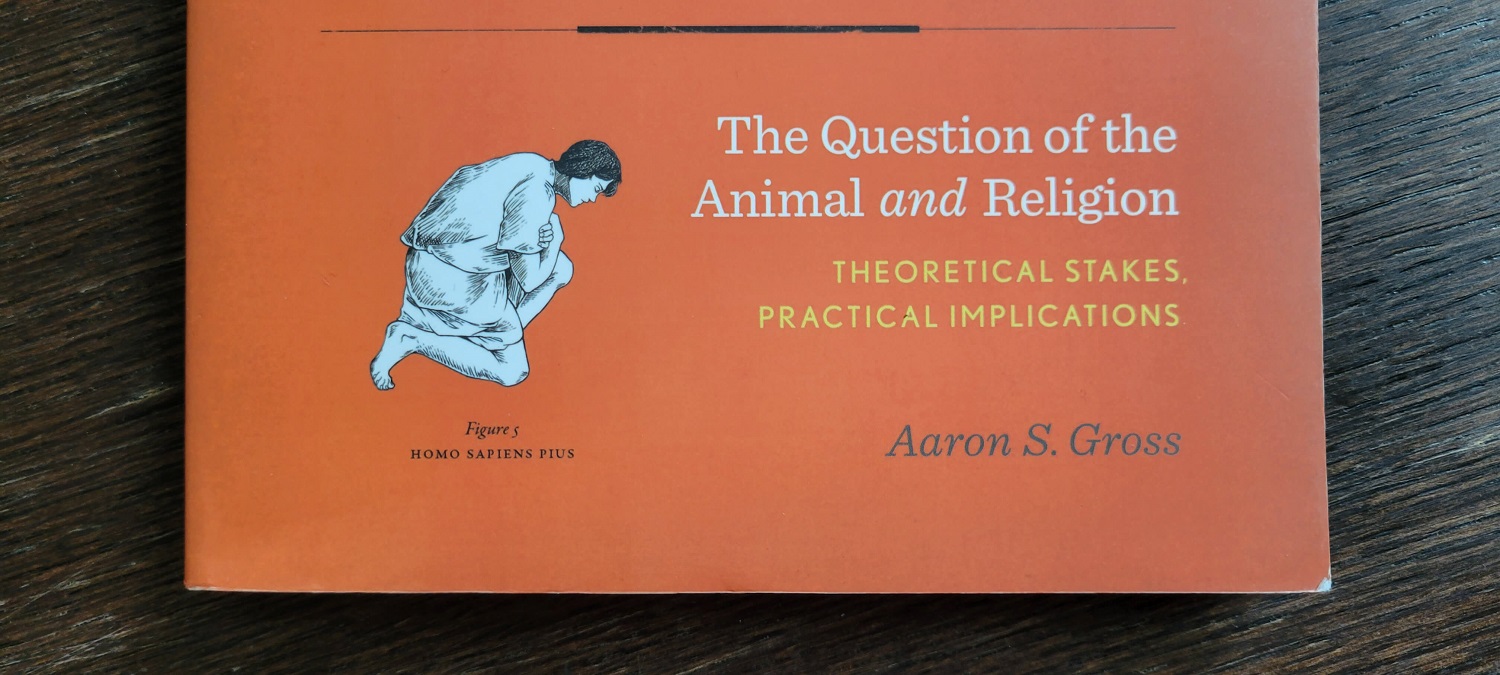Faith in Food: Ethical Food Initiatives
By speaking to the core issues of meaning at stake in the question of eating animals through existing projects like our Jonathan Safran Foer Virtual Classroom Visits, and by building new strategic partnerships with religious institutions through our new Faith in Food Initiative, we can reinvigorate the movement to transform the factory farm at its root.
Most of our national religious institutions haven’t (yet!) responded to the challenge of industrial farming, though they might just be the factory farm’s most powerful enemy. Our new Faith in Food Initiative will change all that by inspiring thousands of faith-based institutions across North America and the UK to create ethical food policies that address animal welfare in ways appropriate to their specific faith communities. We want to make 2016 the year we start putting faith back in food!
Culture Makers
Factory farming is a new problem that has created a need for a new form of advocacy. Farm Forward continually works to cultivate this new advocacy, not only in our own campaigns but also in the approach we take with the many groups we advise and work alongside like the multi-million member HSUS (Humane Society of the United States) and American Society for the Prevention of Cruelty to Animals. As Farm Forward Board Member and best-selling author Jonathan Safran Foer explains:
“When I sat down to write Eating Animals there were many animal groups ready to help, but only one that wanted to think with me about a fresh approach to the issue. Farm Forward’s team is the only one I know that has the will, the expertise, and the creativity to inspire the ongoing innovation we need to end factory farming. Watch this group. They are just getting started.”
– Jonathan Safran Foer, Author
Religious Institutions As Culture Makers
At a time when over 75% of Americans identify as affiliated with an organized religion,1 it’s essential to consider religious institutions as influential culture makers, especially when it comes to animal welfare. Reaching out to religious institutions is not just one new strategic direction among others, but is an essential component to getting the wide acceptance we need for alternatives to the factory farm as diverse as heritage poultry and plant-based meats. Religious institutions often play a gatekeeper role and we believe their voices will be crucial in determining whether the new surge of concern for farmed animals is a short-lived movement or a sustaining force that will transform nations.

Strong prohibitions against unnecessary animal suffering are robust in all the major world religions. The millions of religious people committed to animal welfare want the opportunity to raise their voice for animals not only as people of conscience, but as people of faith.2
A century ago, religious communities in fact drove the creation of many of the now-secular animal protection organizations active in the Western world, but in the first half of the 20th century the factory farm established itself as the dominant way of raising animals in America with hardly a protest from the organized religious community. Happily, today religious leaders across the political spectrum are ending the long silence on arguably the greatest religious issue of our day: the factory farm.
This budding moral movement has been underway since at least the 1970s, and received an unexpected boost 12 years ago when conservative Christian Matthew Scully, a prominent Republican speechwriter, wrote an impassioned call for people of faith to stand up for farmed animals, inspiring what has now become a steady trickle of articles on animals in conservative venues like National Review, First Things magazine, and The American Conservative.3 By bridging religion and the anti–factory farming movement, Farm Forward is also bringing conservatives and liberals together to oppose the factory farm.
Farm Forward’s Longstanding Religious Outreach Work
Since Farm Forward’s inception about a decade ago we have been building an unprecedented network of connections in diverse religious communities that has created a launching point for our new Faith in Food Initiative. We’ve cultivated ongoing conversations about the plight of farmed animals with leading Jewish, Christian, Muslim, Hindu, Buddhist, Jain, and Daoist spiritual leaders through annual participation in multiple national conferences and live presentations at dozens of seminaries, departments of theology, and departments of religious studies.
Farm Forward has also worked quietly to broker and secure funding for activist partnerships between secular animal protection groups and diverse religious institutions, like our work creating an exciting partnership between the nation’s largest secular animal welfare group, HSUS, and the nation’s largest Jewish environmental organization, Hazon. As a result of that partnership Inside Philanthropy opined that “farm animal advocates just scored a brand new ally in what may seem like an unlikely place.”4
We’ve also helped support cutting-edge publications that are changing the way both scholars of religion and theologians are viewing animals, like Farm Forward Founder and CEO Aaron Gross’ multi-award-nominated The Question of the Animal and Religion and David Clough’s remarkable book, On Animals Volume 1, which one leading academic journal described as:5
Indisputably the most important and comprehensive theological treatment of animals to have appeared in any language at any time in the Christian tradition.
– Brian Brock, International Journal for Systemic Theology
Read more about how Farm Forward is supporting Clough to bring his erudite theology to lay Christians through his CreatureKind organization below.
New Farm Forward Initiatives
The Faith in Food Initiative was given an enormous boost in 2015 when we forged the organizational partnerships and secured the grants that have made possible our new Jewish Initiative for Animals (JIFA). Last October we hired an amazing new full-time, three-person team for JIFA, and their efforts are already empowering Jewish communal institutions across the US to create ethical food policies that are challenging the status quo of factory-farmed animal products. We’ve also helped provide financial support for Christian theologian David Clough’s new CreatureKind project—a UK-based initiative working to engage churches in new ways of thinking about Christian ethics, with a special focus on farmed animal welfare issues.
Both of these initiatives are part of a larger plan to stimulate religious institutions to take community-specific approaches to the problem of factory farming and specifically to develop ethical food policies that reflect their own values. In our view, secular nonprofit groups like Farm Forward have no business telling religious institutions how they should regard animals, but we can and have called upon people of faith to work with us and with their communal institutions to wake the sleeping giant of faith-based advocacy in order to transform factory farming.
Jewish Initiative For Animals:
Building Jewish Engagement with Farmed Animal Protection
Jewish Initiative for Animals (JIFA) is focused on building relationships between Jewish institutions and national animal protection organizations. In the coming years, JIFA will stimulate hundreds of Jewish institutions to establish enduring ethical food policies that consider animal protection as a Jewish value. Our newly hired three-person JIFA team is working tirelessly to:
- Collaborate with Jewish non profit organizations—camps, synagogues, youth groups, community centers, schools, college programs, and more—to produce educational resources that will spark inquiry into how Jewish values should interact with food choices,
- Help Jewish institutions that serve meat to transition to higher-welfare sources by actually expanding the available supply of kosher meat that is higher welfare, and
- Empower Jewish institutions to create ethical food policies that will lay the groundwork for future national campaigns.
Here is Sarah Chandler, JIFA’s Leader, on the farm with baby goats!
We Are CreatureKind:
Building Christian Engagement with Farmed Animal Protection
CreatureKind was founded by David Clough, President of the Society for the Study of Christian Ethics, author of the On Animals (volumes 1 & 2), and Co-Chair of the Animals and Religion Group of the American Academy of Religion—is an initiative based on academic work exploring Christianity and animal ethics. With the understanding that worldwide, more than 70 billion fellow land creatures and up to 7 trillion sea animals are killed for food each year, Clough, who is arguably the most important theologian of animal ethics and factory farming in the world, felt compelled to engage churches in new ways of thinking about ethics, animals, and food policies.
The goal of CreatureKind is to introduce these new ways of thinking at an institutional and congregational level. This conversation is made possible through the distribution of books and other resources for popular Christian audiences, online tools for learning and collaboration, support for Christians in the animal welfare movement, and speakers able to address congregations and faith communities on the theology and practice of being CreatureKind.
Please sign up for our monthly newsletter below to receive updates about our innovative faith outreach work and other programs. If you’d like to support our work to change the way our world eats and farms, please make a contribution today.
Endnotes
1.
Pew Research Center, U.S. Religious Landscape Study,2014. Read here.
2.
Lisa Kemmerer, Animals and World Religions (Oxford University Press, 2011). available here.
3.
Mary Eberstadt, “The Truth About Religion and Animals,” Time Magazine, December 2014.
4.
Stephanie Garden, “Holy Cow: How This Funder Found Religion in Farm Animals,” Inside Philanthropy, November 11, 2015, available here.
5.
Brian Brock, International Journal for Systematic Theology, 17(3), 2015, pp. 357–60).
